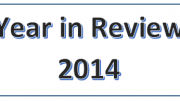Update: Gov. Jared Polis signed HB 21-1214 into law on July 6, 2021.
By Jeffrey A. Roberts
CFOIC Executive Director
State legislation designed to reduce collateral consequences for people with criminal records would hinder the ability of news organizations to identify systemic problems in the criminal justice system and hold public officials accountable, journalists told Colorado lawmakers this week.
House Bill 21-1214, which passed the House Judiciary Committee on a 7-4 vote Tuesday, creates additional opportunities for the sealing of lower-level criminal records, including an automatic process for closing public access to many arrest records when no criminal charges have been filed. It also lets some former offenders with multiple convictions — and those who have received full pardons — petition to have their records sealed.

The point is to give people “second chances” to rebuild their lives by removing a significant barrier to employment and housing, said the bill’s sponsor, Rep. Mike Weissman. Having a criminal record “in our world, in our time, operates pretty powerfully as punishment against a lot of people,” the Aurora Democrat told committee members.
The journalists who testified said they are sympathetic to the bill’s intent, but they asked legislators to also consider the effect of criminal-record sealing on public-service news reporting.
“I have found that arrest records are often key to the analysis of government programs and operations and often lead to systemic changes that protect public health and safety,” said John Ferrugia, a long-time Denver broadcast journalist who now reports for the Colorado News Collaborative. He cited the example of a speeding driver who killed an elderly couple in Denver several years ago. The driver had been arrested 10 times in the past, including for reckless driving, “but in each case, pled it down to a minor misdemeanor and retained his license.”
“Once we exposed this pattern, the state motor vehicles department made modifications to its policies and practices to protect public safety,” Ferrugia said. “If those cases were sealed, no one would have ever identified the pattern — which is a very important thing, the pattern — and the public would remain at risk.”
Susan Greene, who reports for the Colorado News Collaborative and chairs the Colorado Press Association’s advocacy committee, discussed how reporters frequently use arrest records to background elected officials and those running for office and she explained her use of criminal records to expose problems with “the efficacy of our criminal justice system. That efficacy cannot be assessed solely by data and statistics,” she said. “It is laid bare in individual cases, each with its own characters, facts and stories.
“By sealing a wide swath of arrest and conviction records, you will be effectively erasing important information about how specific police, prosecutors and judges do their jobs. You would hinder voters’ ability, based on that information, to make fully informed decisions about whether to reelect specific sheriffs and DAs and retain judges. And you would paralyze efforts to, in concrete detail, expose racism, misconduct and other problems with the criminal justice system.”
Greene recently teamed with a Kiowa County Independent reporter to investigate the fatal police shooting of an unarmed man, Zach Gifford, in April 2020, and she is working on a follow-up story about other excessive-force allegations against a sheriff’s deputy involved in the shooting. Charges in those other cases had to be dropped, she testified, because of his alleged misconduct.
“Sealing those arrests in court records would have prevented the public from knowing about the deputy’s pattern of excessive force and understanding that history enough to ask his boss, the elected sheriff, why he hadn’t disciplined or fired the deputy before the day Zach was killed.”

Nicole Vap, director of investigations at 9NEWS and vice president of the Colorado Freedom of Information Coalition, told lawmakers the additional sealing of records will make it harder for journalists to update stories about people who have been acquitted of crimes or have had charges against them dropped. “Those stories will sit there on our website … they’re still going to be out there,” she said. “But if we’re able to update them, at least accurate information will be there.”
The bill relies on the “false and misleading assumption that sealing the records will allow these arrests or convictions to be truly forgotten or erased,” said Tim Regan-Porter, CEO of the Colorado Press Association. “Purging the internet of content is virtually impossible. Such information is published in newspapers, discussed on social media sites, archived in databases like ProQuest and LexisNexis and sold by the court system itself. Once criminal record data is made public, it is unregulated … Sealing a record does not erase the information and does not protect those arrested from the consequences they care about most.”
HB 21-1214 follows previous collateral consequences bills sponsored by Weissman, including a 2019 law that simplified the process for sealing many criminal records. Responding to the journalists’ concerns, Weissman cited his past support and sponsorship of several government transparency bills and he stressed that other recent laws require the collection and reporting of data on policing and the criminal justice system in Colorado. He noted that state law lets anyone, including a journalist, ask a judge to unseal criminal records if there is now a public interest in disclosure.
“Press are part of holding power to account and part of a well-ordered, decent functioning society,” Weissman said. “I happen to think that another part of a well-ordered, decent functioning society is letting people move past mistakes that they’ve made, low-level offenses.”
Because HB 21-1214 requires an appropriation to several state agencies, it now goes to the House Finance Committee.
Follow the Colorado Freedom of Information Coalition on Twitter @CoFOIC. Like CFOIC’s Facebook page. Do you appreciate the information and resources provided by CFOIC? Please consider making a tax-deductible donation.




